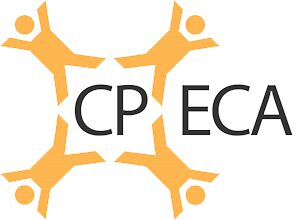Nothing about us without us
August 2016 | Volume 58 | Issue 8
Anushka is 14 years old. She and her parents live a 3-hour drive from Kathmandu, in a village where their livelihood is the potato crop. Today her Outreach Worker from the Self-Help Group for Cerebral Palsy Nepal (SGCP) is coming with visiting professionals. They have been invited by SGCP to contribute their up-to-date knowledge in the hope of improving the daily lives and function of children with cerebral palsy.
Anushka has no speech. She is unable to walk, and spends her day sitting outside, propped against the wall of the house, tormented by her younger brother, and surrounded by goats and chickens. She has never learned to sit unaided. The visitors ask Mother if she has a stool or box for Anushka to sit on. She produces an old wastepaper basket, which is turned upside down and Anushka is shown how to sit on it independently; her bare feet placed firmly on the ground increase her stability. Father arrives. Seeing Anushka seated upright, he says he will make a wooden box for her to sit on.
Curious neighbours join the discussion. ‘We all admire you’, says one man, ‘the way you look after Anushka.’ Another says, ‘Had she been my daughter, I would have left her out on the mountainside to die.’ ‘We do our best,’ says a third. ‘We call in to see if she is alright.’
The visitors notice that Anushka has ‘good hands’, and ask how she drinks. Mother tilts Anuska’s head back and pours a beaker of water from a great height. The visitors ask Anushka if she would like to drink by herself. She smiles. They have brought a two-handled mug, which Anushka is able to grasp with both hands. She lifts it to her lips and drinks.
Anushka does not attend school, because transporting her is a problem. The village streets consist of deep sand. The visitors suggest a portable chair with poles. Immediately, there are offers to make one, and Anushka gets very excited. Her parents continue talking with their neighbours. Their fears of being ostracized because of Anushka disappear. They wave the visitors goodbye, discussing future plans with enthusiasm.
This thumbnail sketch illustrates the importance of including parents and the person with special needs in all conversations about their welfare. The International Cerebral Palsy Society (ICPS), founded in 1969, helps others to help themselves. Parent organizations globally, individual professionals, and people with disabilities form its membership. The ICPS seeks to share new approaches and ideas, to reply to online enquires, and to respond appropriately to needs. It works at low cost with people with cerebral palsy, their families, and those who work with them.
The ICPS team that worked with Anushka and other children in Nepal is comprised of a physiotherapist and a special needs teacher. They do not work to a conventional model. Instead, they use their skills to complement each other and are able to look, listen, and learn from the family, taking into account environmental and economic factors, especially living conditions, and they are able to improvise accordingly. Problems may seem the same, but solutions can be very different.
For over 50 years, parents have asked me the same questions: ‘Will my child walk, will he get a job, and will he marry?’ Though the questions never change, the answers do, as our knowledge and understanding improve. Parents are the experts on their children. We need to listen to what they and their children tell us, respond in plain language, and thus ensure that we honour the Disability Rights groups’ slogan, ‘Nothing about us without us’.
ANITA LORING
Chairman
International Cerebral Palsy Society
doi:10.1111/dmcn13187
2016 Mac Keith Press
